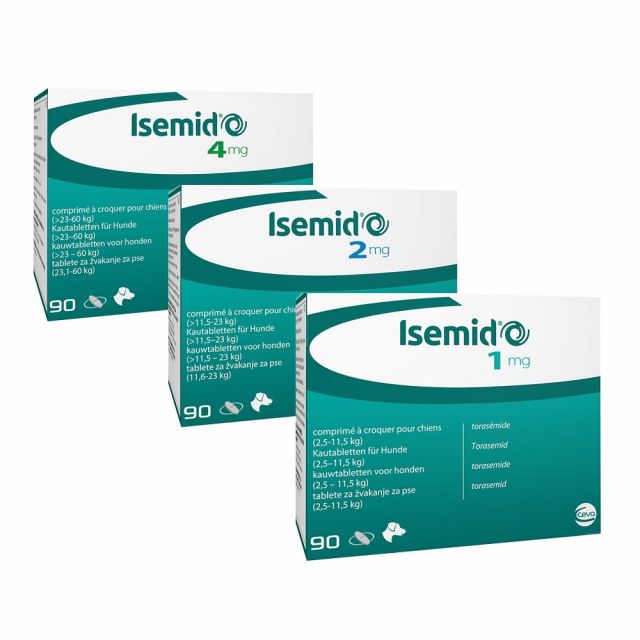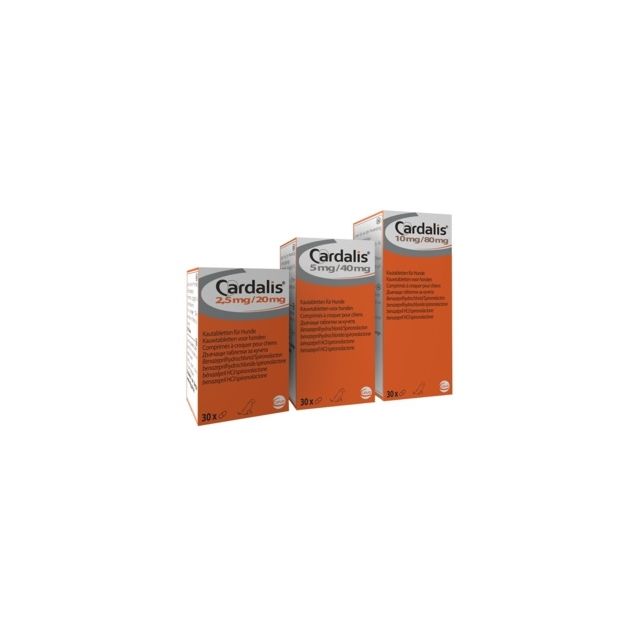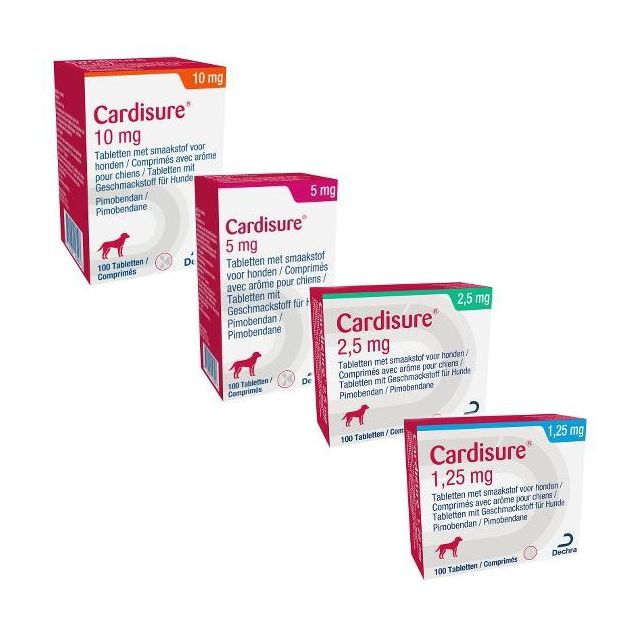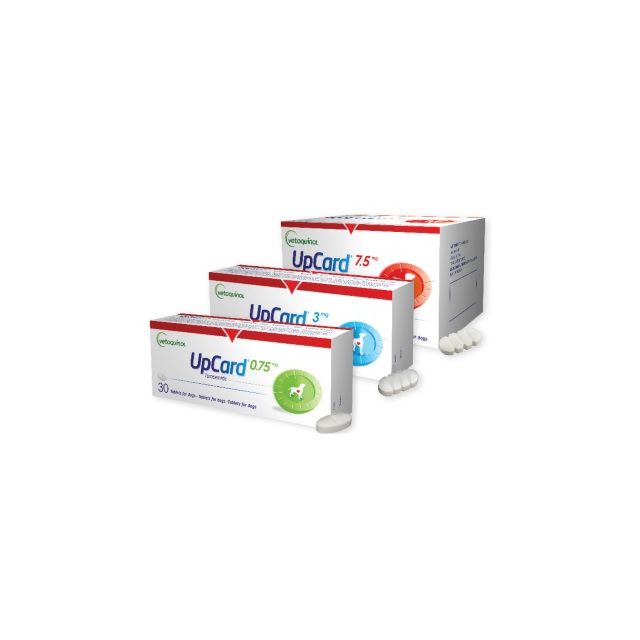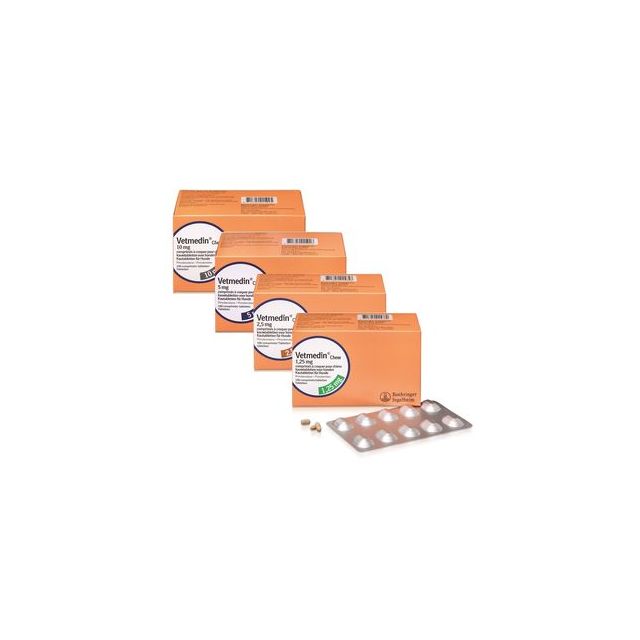The heart of the dog
Heart problems are common in dogs. In smaller breeds, leaking heart valves often develop in later life, while large dogs are more prone to heart muscle diseases. Additionally, congenital heart defects, issues with the pericardium, blood pressure problems, and heart rhythm disorders can occur.
Heart medication is often prescribed once the heart is enlarged. In puppies with a heart murmur or dogs with heart rhythm disorders, early intervention may be necessary, even before symptoms become apparent.
Symptoms of Heart Disease in Dogs
A distinction must be made between heart disease and heart failure. Heart disease includes any abnormality of the heart. Because the heart is such an important organ, it has many compensatory mechanisms to maintain its function as long as possible. For example, it may beat faster or contract more forcefully. In the early stages of heart disease, you may not notice any symptoms in your dog. However, a veterinarian may detect signs such as a heart murmur during a physical examination or an unusually fast or irregular heartbeat.
In heart failure, the heart is "decompensated" and can no longer cope. This often results in congestion in the lung or body vessels. Dogs with heart failure may suddenly experience shortness of breath (rapid breathing, increased abdominal effort), start coughing, have a significantly reduced endurance, and/or develop a suddenly swollen abdomen.
High blood pressure usually goes unnoticed, even though prolonged hypertension can have devastating effects on your dog's health.
Fainting spells during exertion or excitement are sometimes seen in dogs with heart rhythm disorders, and they can also occur in cases of heart failure.
Diagnosis of Heart Problems by the Veterinarian
The diagnosis of heart problems by a veterinarian involves various examinations.
Medical History (Anamnesis)
The veterinarian may already suspect a heart condition based on your observations. Your dog may have reduced stamina, cough at night, or occasionally faint. However, in the early stages of heart disease or with high blood pressure, the medical history alone may not be helpful since there may be no visible symptoms. However, the breed and age of your dog can assist the veterinarian in making a diagnosis.
Physical Examination
By examining the mucous membranes, feeling the pulse, and listening to the heart and lungs, the veterinarian can assess your dog's heart health.
Chest X-Ray
A chest X-ray allows the veterinarian to evaluate the size and shape of the heart. Many heart conditions cause heart enlargement. An X-ray often determines whether medication should be started. The lungs are also assessed on an X-ray. In heart failure, fluid accumulation in or around the lungs is commonly observed.
Heart Ultrasound
An ultrasound provides a direct view inside the heart. It can reveal whether the heart muscle is thickened or thinned, how blood flows through the heart, whether the valves close properly, and how efficiently the heart muscle contracts. An echocardiogram is often essential for diagnosing the exact heart condition.
ECG (Electrocardiogram)
An electrocardiogram (ECG) or heart scan is performed in cases of heart rhythm disorders. It provides a detailed representation of the heart’s rhythm.
Blood Pressure Measurement
Many heart diseases are associated with high blood pressure. Conversely, hypertension can also negatively impact heart function.
Common Heart Conditions in Dogs
The two most common heart diseases in dogs are briefly discussed below.
Leaking Heart Valve in Small Dogs
Approximately 75% of dogs with heart disease have a leaking mitral valve, which is located between the left ventricle and the left atrium. Because the valve does not close properly, blood flows back (insufficiency). This condition is known as "mitral valve insufficiency" and is particularly common in small, middle-aged dogs. Certain breeds, such as the Cavalier King Charles Spaniel, are more prone to this condition.
Initially, this results in a mild heart murmur without clinical symptoms, but over time, the leakage can worsen, leading to heart failure. The diagnosis is usually based on the "signalment" (a middle-aged small dog) and the detection of a heart murmur during a physical examination. An X-ray and/or ultrasound can confirm the diagnosis. Whether heart medication is needed depends on whether the heart is enlarged and whether heart failure is present.
Heart Muscle Disease in Large Dogs
Large dogs are more commonly affected by heart muscle diseases such as dilated cardiomyopathy (DCM). In this condition, the heart becomes enlarged, loses muscle strength, and the heart wall becomes thinner, reducing the efficiency of blood circulation. Essentially, the heart becomes "stretched."
This condition is diagnosed through ultrasound. Heart medication is almost always required. Heart rhythm disorders and heart failure are common complications of DCM.
Heart Medication
Heart medications for dogs are divided into several categories. In cases of heart failure, a combination of different medications is often prescribed.
Medications to Strengthen Heart Contractions
The active ingredient pimobendan increases heart muscle strength and relaxes blood vessels, improving the heart's output. It is prescribed for both mitral valve insufficiency and dilated cardiomyopathy (DCM). Pimobendan is found in Cardisure, Pimotab, and Vetmedin.
Diuretics
Heart failure can lead to ascites (fluid in the abdominal cavity) or edema (fluid in the lungs or under the skin), which can cause severe breathing difficulties and coughing. Furosemide (Libeo, Furosoral), torasemide (Isemid, Upcard), and spironolactone (Cardalis, combined with an ACE inhibitor) help remove excess fluid from the abdomen, chest, lungs, or other areas via urine. These tablets are commonly referred to as "water pills." By eliminating extra fluid, the circulatory system is less "filled," reducing blood pressure and relieving strain on the heart.
ACE Inhibitors
ACE inhibitors like Benakor prevent unnecessary fluid retention by the kidneys and relax blood vessels. They help slightly lower blood pressure. Other ACE inhibitors include Cardalis (combined with a diuretic) and Fortekor.
Blood Pressure-Lowering Medication
If your dog has high blood pressure, medication (such as ACE inhibitors) is necessary to normalize it.
Medication for Heart Rhythm Disorders
For irregular heartbeats, medication is prescribed to help regulate your dog’s heart rate. In some cases, medication may not be sufficient, and a pacemaker may be required.
If you have any questions about heart problems in dogs or our products, please contact us.




